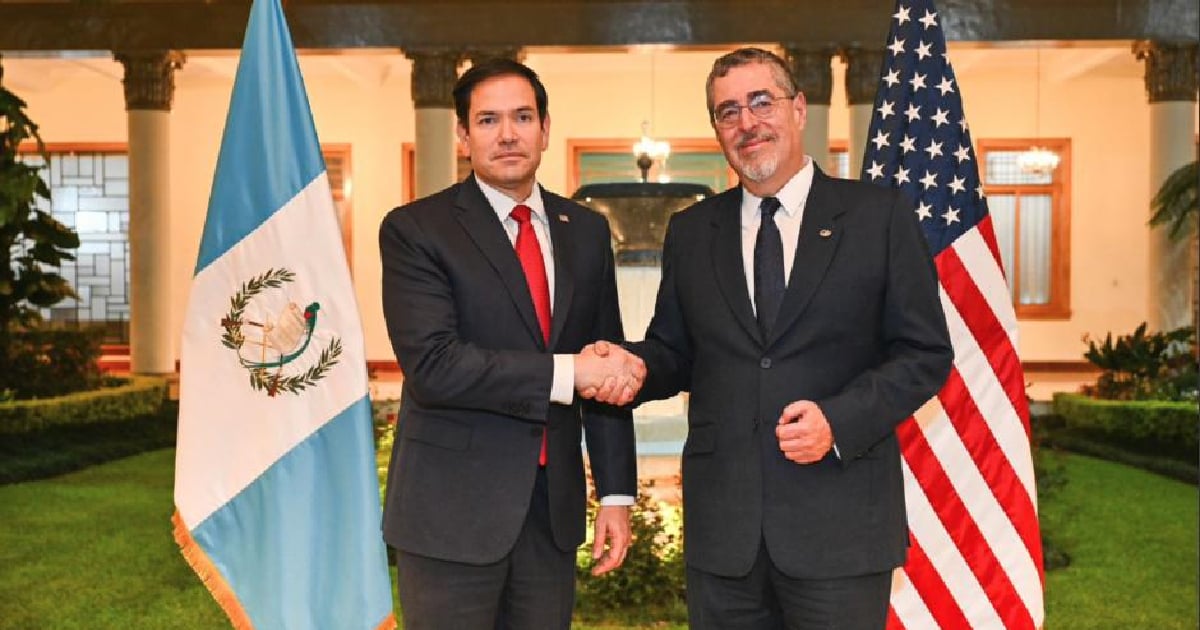Guatemalan President Bernardo Arévalo announced on Wednesday that his nation will accept migrants from other countries who are deported from the United States, following an agreement with U.S. Secretary of State Marco Rubio, who is on a tour of Central America. According to an AP news report, Arévalo stated that these deportees would eventually be sent back to their countries of origin at the expense of the United States.
During a joint press conference with Rubio, the Guatemalan leader disclosed that they also agreed to "increase the number of deportation flights by 40%, which includes Guatemalan nationals as well as deportees of other nationalities." Guatemala has been cooperating with the reception of deported individuals from the U.S., utilizing both civilian and military flights.
Regional Diplomatic Efforts Intensify
Rubio's tour, his first international engagement as the top U.S. diplomat, has taken him to five Central American countries—Panama, El Salvador, Costa Rica, Guatemala, and soon the Dominican Republic—with a primary focus on immigration, a key priority of President Donald Trump's second term.
In El Salvador, Rubio secured a broader agreement. President Nayib Bukele agreed to accept deported individuals from the U.S., regardless of their nationality, including American citizens and legal residents imprisoned for violent crimes, a proposal Trump expressed willingness to consider, despite legal uncertainties.
Legal Challenges and International Cooperation
"I’m just saying, if we could do it legally, I would do it without hesitation," Trump remarked to reporters on Tuesday in the Oval Office. "We are currently reviewing that," he added.
Secretary Rubio considered Bukele's offer as an "unprecedented gesture of friendship," yet acknowledged the "obvious legal issues involved. We have a Constitution," he stated.
Following the agreement, State Department spokesperson Tammy Bruce clarified that El Salvador would receive violent illegal immigrants, including members of the Venezuelan gang Tren de Aragua, as well as criminals of any nationality.
Aligning with Trump's Immigration Policies
The recent accords with Guatemala and El Salvador align with the Trump administration’s objective to harden immigration policies and tackle transnational crime.
In prior days, after facing economic and diplomatic pressure from the U.S., the governments of Colombia and Mexico agreed to accept flights with deported migrants from the United States.
Mexican President Claudia Sheinbaum announced in late January the acceptance of migrants of various nationalities, including Cubans, deported by the United States who cannot be directly sent to their home countries.
Meanwhile, Colombian President Gustavo Petro, after initially rejecting the entry of U.S. military planes with repatriated migrants and engaging in a tense exchange with Trump, pledged to ensure the dignified transfer of deported Colombians as part of a commitment to human rights and the dignity of his citizens.
Understanding U.S.-Central America Immigration Agreements
What is the agreement between Guatemala and the U.S. regarding undocumented migrants?
Guatemala has agreed to accept migrants deported from the U.S., who will later be returned to their home countries at the expense of the United States.
How does El Salvador's agreement with the U.S. differ from Guatemala's?
El Salvador's agreement is broader, allowing for the acceptance of deported individuals from any nationality, including Americans and legal residents imprisoned for violent crimes.
What challenges does the U.S. face in implementing these agreements?
The U.S. faces legal challenges in deporting certain groups, as well as diplomatic negotiations to ensure cooperation with Central American countries.
